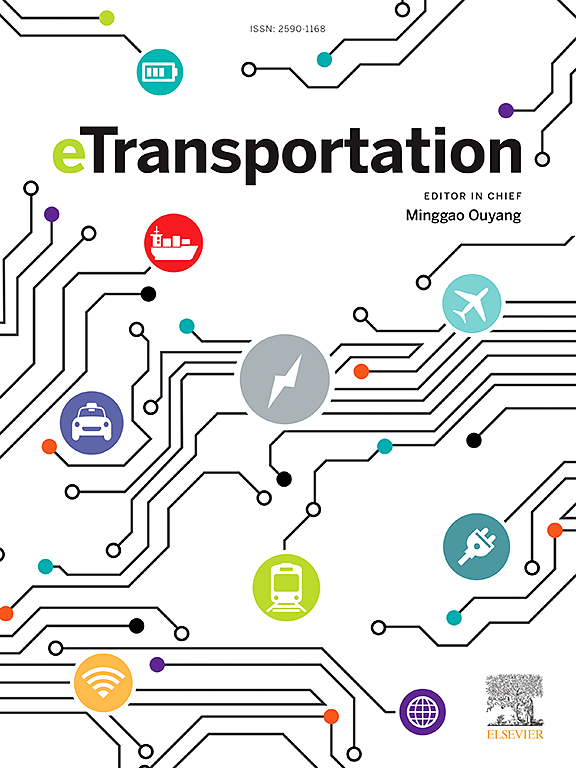eVTOL热管理的最新研究综述:系统架构、关键组件和新兴技术
IF 17
1区 工程技术
Q1 ENERGY & FUELS
引用次数: 0
摘要
电动垂直起降飞机(eVTOL)代表了现代交通运输的变革性解决方案,具有高速度、低噪音和操作灵活性。然而,它们的动力系统性能对温度高度敏感,并且它们的运行场景和任务剖面与地面电动汽车(ev)有很大不同。此外,客舱热调节显著影响能量消耗,从而影响飞行距离。因此,高效的热管理系统(TMS)对于eVTOL应用至关重要。本文首先回顾了eVTOL动力系统架构,然后系统地研究了相应的TMS架构,包括它们的工作原理、特点和局限性。然后分析了关键动力总成部件的热管理要求,并对相关热管理技术进行了综述。此外,还讨论了适用于evtol的新兴技术,重点是它们提高系统性能的潜力。最后,指出了当前研究的不足,并提出了未来研究的方向。据我们所知,这是eVTOLs热管理技术的第一次专门审查,旨在澄清最新技术,确定存在的挑战,并为研究人员和行业从业者提供有价值的见解。本文章由计算机程序翻译,如有差异,请以英文原文为准。
A state-of-the-art review on eVTOL thermal management: system architectures, key components and emerging technologies
Electric vertical takeoff and landing aircraft (eVTOL) represent a transformative solution for modern transportation, offering high speed, low noise, and operational flexibility. However, the performance of their powertrains is highly temperature-sensitive, and their operating scenarios and mission profiles differ significantly from those of ground-based electric vehicles (EVs). In addition, cabin thermal regulation significantly affects energy consumption, thereby influencing the flight range. Consequently, an efficient thermal management system (TMS) is essential for eVTOL applications. This paper first reviews eVTOL powertrain architectures, followed by a systematic examination of the corresponding TMS architectures, including their operating principles, characteristics, and limitations. The thermal management requirements of key powertrain components are then analyzed, along with the review of relevant thermal management technologies. Moreover, emerging technologies applicable to eVTOLs are discussed, with an emphasis on their potential to enhance system performance. Finally, current research gaps are identified, and directions for future investigation are proposed. To the best of our knowledge, this is the first dedicated review of thermal management technologies for eVTOLs, aiming to clarify the state of the art, identify existing challenges, and provide valuable insights for researchers and industry practitioners.
求助全文
通过发布文献求助,成功后即可免费获取论文全文。
去求助
来源期刊

Etransportation
Engineering-Automotive Engineering
CiteScore
19.80
自引率
12.60%
发文量
57
审稿时长
39 days
期刊介绍:
eTransportation is a scholarly journal that aims to advance knowledge in the field of electric transportation. It focuses on all modes of transportation that utilize electricity as their primary source of energy, including electric vehicles, trains, ships, and aircraft. The journal covers all stages of research, development, and testing of new technologies, systems, and devices related to electrical transportation.
The journal welcomes the use of simulation and analysis tools at the system, transport, or device level. Its primary emphasis is on the study of the electrical and electronic aspects of transportation systems. However, it also considers research on mechanical parts or subsystems of vehicles if there is a clear interaction with electrical or electronic equipment.
Please note that this journal excludes other aspects such as sociological, political, regulatory, or environmental factors from its scope.
 求助内容:
求助内容: 应助结果提醒方式:
应助结果提醒方式:


